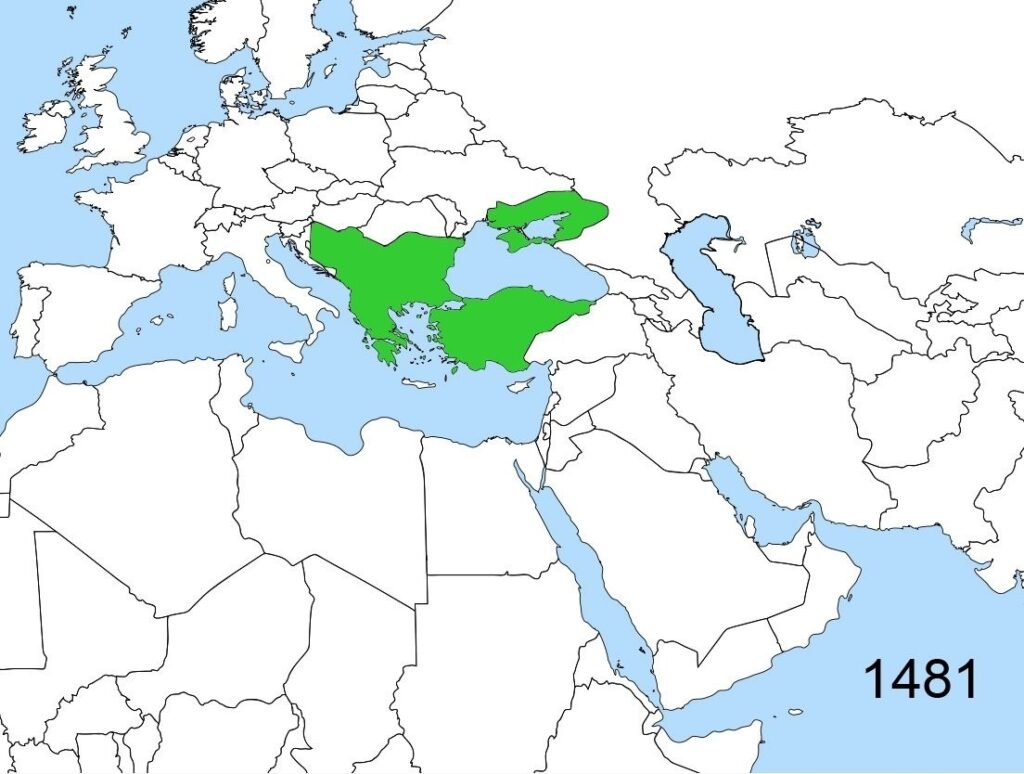Bayezid II is one of the most forgotten and unpopular Ottoman sultans. It cannot be said that he was a bad warrior or an inept administrator, but the only thing that sometimes makes him remembered is the Spanish Jews whom he sheltered in his country after exile.

There were no major wars or other important historical events during his reign. Therefore, the sultan is inferior in fame to such bright personalities as his father Mehmed the Conqueror, son Selim the Terrible and grandson Suleiman the Magnificent. Nevertheless, he stabilized the empire and managed to increase its power, which prepared the state for territorial expansion under his descendants.
Bayezid was born in 1447, six years before his father took Constantinople. It happened in the palace of the city of Dimetoka, located near Edirne, the then Ottoman capital. His mother was Gulbakhar-khatun’s concubine, either Albanian or Greek, with whom he was sent to study the art of government in the Anatolian sanjak of Amasya at the age of seven.
Shehzade spent 27 years there and became known as a calm and relaxed person, a great lover of all kinds of pleasures. Along with the consumption of wine, which was not uncommon for the Ottoman sultans, it was rumored that the prince smoked hashish and even repeatedly tried opium.

However, in 1473, Bayezid, as commander of the right flank, took part in the battle of Otlukbeli against the Turkic power Ak-Koyunlu, which dominates Iran and the Caucasus. The troops under his command performed better than the contingents of another tsarevich.
After the death of his father, this shehzade was the first to reach Istanbul, after which he defeated his brother in a series of battles. He was forced to flee to the Egyptian Mamluks, and then to Europe. The new sultan paid the hospitallers and the pope not to be released, and the rival was no longer a problem.
Having gained power, Bayezid again showed his calm character. In the more than thirty years that he sat on the throne, the sultan went on campaigns only five times – quite a few, compared with his descendants and predecessors. Nevertheless, he was not afraid of war and eliminated or nullified all the threats facing his country.
In alliance with the Moldavian Principality, he defeated the Hungarians and Poles – the consequence of this campaign was to deprive his vassals of access to the sea and obtain a land corridor to the Crimean Khanate. Venice lost its outposts in Greece, and Hellas was conquered all the way to the Peloponnese. After that, the Italian sailors were no longer particularly dangerous, and the Ottoman Empire gained a foothold in the Eastern Mediterranean.

At the same time, the Turks fought for the first time with the Egyptians, whose possessions in Anatolia after their conquest of the Cilician Armenian state spread beyond the Taurus mountain range. The two great powers of the Islamic world fought each other through their vassals, and their own armies rarely met on the battlefield. In general, the Ottomans did not achieve their goals, but the pyramid country did not gain a strategic advantage either.
Bayezid also had to deal with rebellious Turkic tribes who sympathized with the Shiite Safavid state that had arisen before his eyes. The Sultan took measures to restore the balance of power in the region, but only his son Selim finally solved the problem by defeating the Iranians and directly annexing Eastern Anatolia.
At the end of his long–term reign, this monarch had to face a «small apocalypse» — as contemporaries called the Constantinople earthquake of 1509. Since the tremors lasted for more than a month and a half, he had to live for some time in a tent in the garden of his own palace, and then in a wooden hut outside the capital. However, he then called for builders from all over the country and restored the city and its surroundings in a short time.
Bayezid had many heirs, but only three lived long enough to compete for power. By the end of their father’s life, they were all grown men under forty. His favorite Korkut had no sons, so he had a low chance of obtaining the throne. Ahmed did not have this disadvantage, but he made rash political decisions. Selim was considered too sullen, however, for the campaigns against the Georgian princes, he had a certain popularity in the army. On top of everything else, he became related to the Crimean khan, and there was a huge force behind that.
When Bayezid weakened, Selim arrived in the capital first. He removed his father from power and sent him to Dimetoka, the very city where he was born many years ago. But along the way, the deposed monarch passed away, and different things were said about the reasons for this.
